India welcomes Myanmar’s Suu Kyi-led transition towards democracy
As Aung San Suu Kyi and other ministers were administered oath of office on Wednesday, India welcomed Myanmar’s metamorphosis towards democracy.
India on Wednesday welcomed Myanmar’s metamorphosis towards democracy under Nobel Peace Prize winner Aung San Suu Kyi, who will have to grapple with the long shadow of the armed forces hovering over the fledgling elected government.
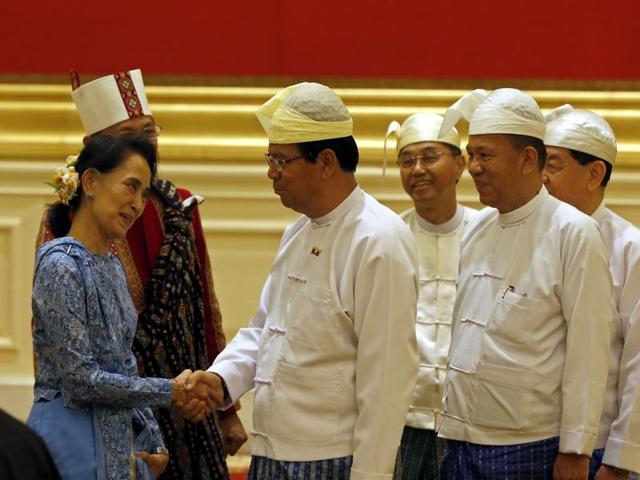
Wearing a blue sarong and blouse, the 70-year-old head of the National League for Democracy was among 18 cabinet ministers collectively administered the oath of office.
On paper, Suu Kyi will be minister for foreign affairs, the president’s office, education and energy – at least to start with. In practice, she will be the final arbiter on all non-security matters in the new administration.
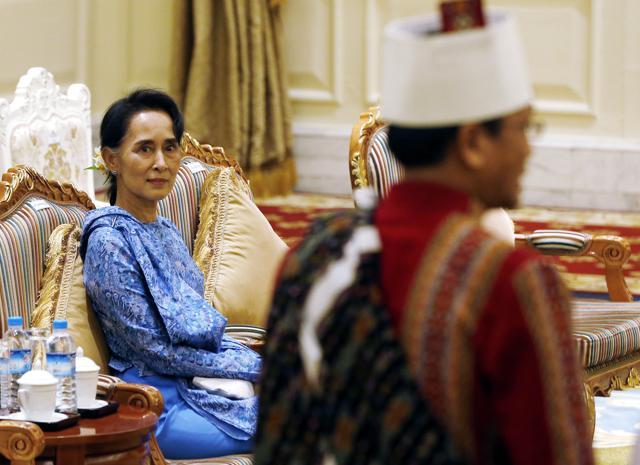
Reacting to the momentous development, Indian ambassador Gautam Mukhopadhaya remarked: “With the reforms, peace process, free elections and the new government, we can hope to see greater business interest in India free from residual baggage of the past and a fuller development of relations across the board as democracies under a popularly elected leader and government.”
How Suu Kyi reciprocates will be gauged from how early and with what priorities she visits New Delhi.
After a 28-year struggle, which included years under house arrest, she said in a recent interview: “This is just a beginning of a road.” She could soon be in the midst of tough negotiations with the armed forces as she seeks to alter a 2008 charter which enshrines the military’s omnipotence in the country’s politics.
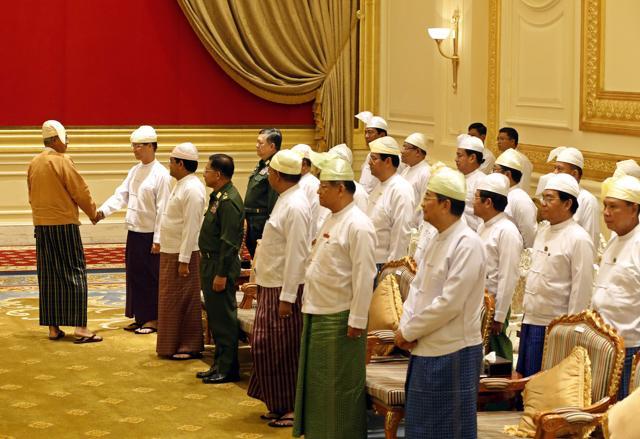
Debarred by the existing Constitution from becoming the president, she nominated a London-educated economist and confidante, Htin Kyaw, 69, for the post.
In a brief address to a joint session of the national parliament after being sworn in as the country’s first civilian president since 1962, Htin Kyaw said: “We have a duty to work for the emergence of a Constitution that is appropriate for our country and also in accordance with democratic standards.”
“Our new government,” he promised, “will implement national reconciliation.” He also gave an undertaking that it will “enhance the living standard of the people”.
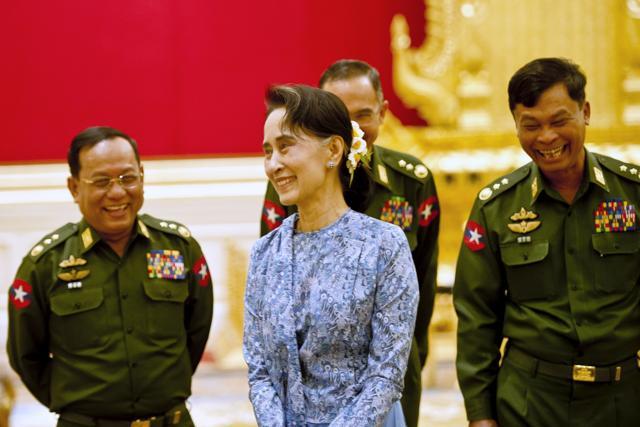
Apart from controlling the ministries of home, defence and borders affairs, the men in uniform will continue to occupy 25% of seats in parliament.
In effect, Suu Kyi’s party – which won a three-fourths majority in the parliament – will have to cohabit with the military, which has directly or indirectly ruled India’s northeastern neighbour for 54 years.
A sprawling complex of buildings, amalgamating Buddhist and western architecture, constitute the union legislature in the spectacular but eerily silent capital of Naypyitaw, 330 km to the north of Yangon, Myanmar’s biggest city.
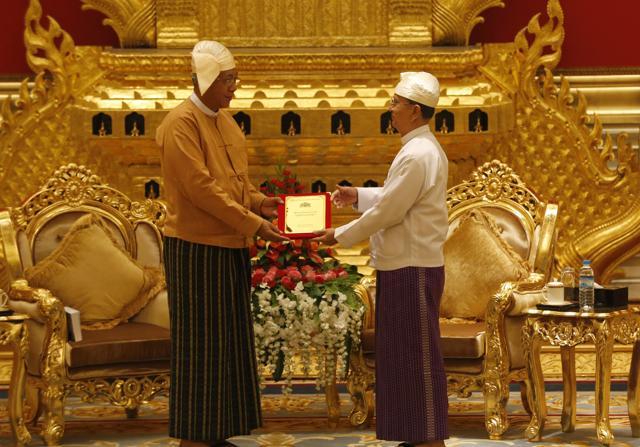
Inside, the attending lawmakers watched in awe and applauded. Some NLD members shed tears of joy. Many of them had been imprisoned and tortured by the junta.
Witnessing proceedings was army chief Min Aung Hlaing, who on Sunday caused anxiety by suggesting conditional support to the new order in a speech at an annual parade.
Outgoing president Thein Sein, a former army general who creditably guided the country’s passage from a draconian dictatorship to a predominantly civilian dispensation, was photographed with his successor.
The handover completed a transition that was set in motion by the NLD’s stunning victory in elections held in November.





